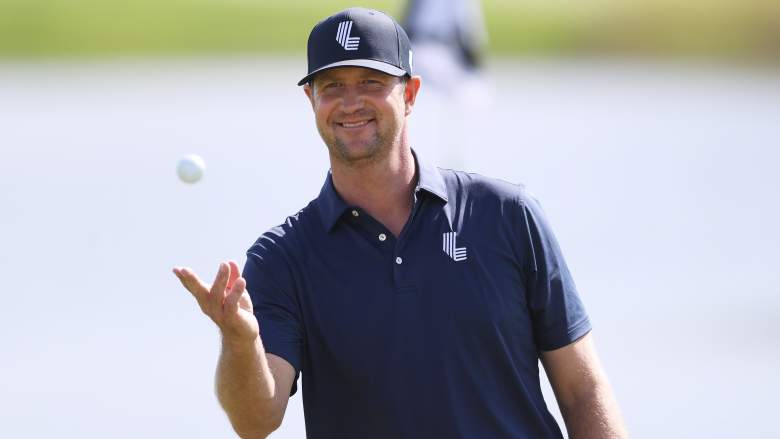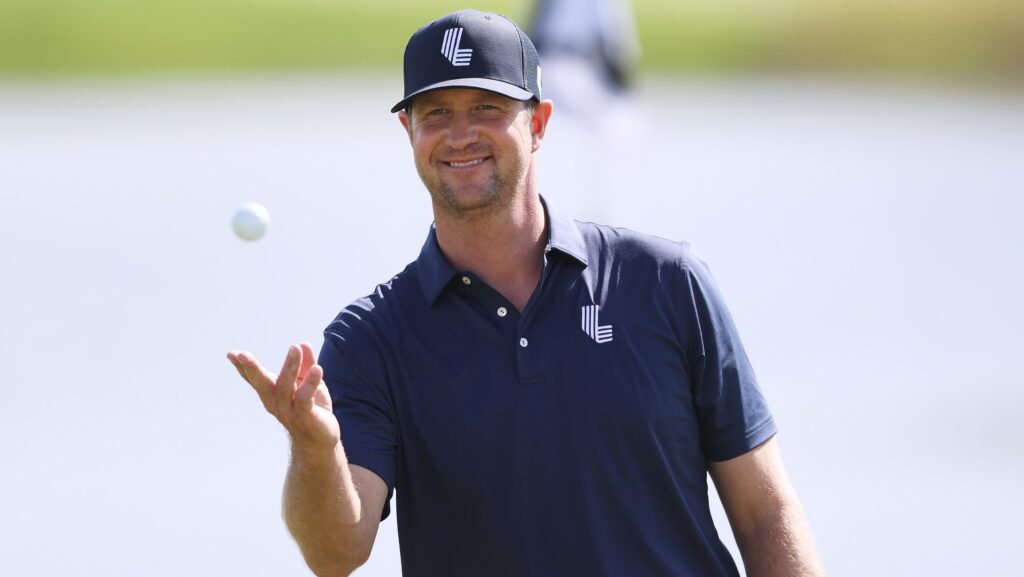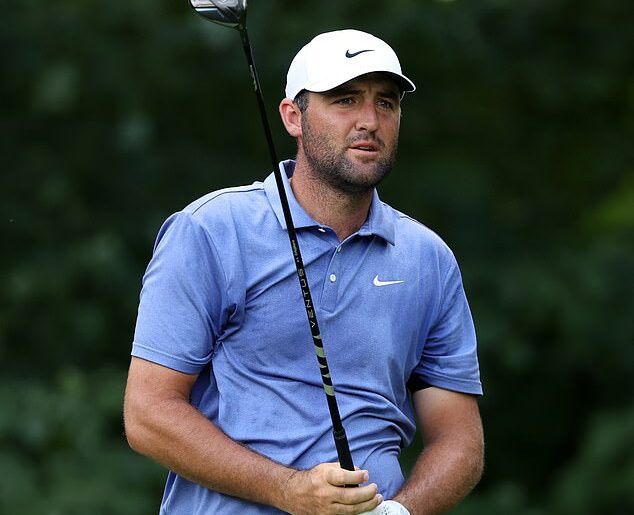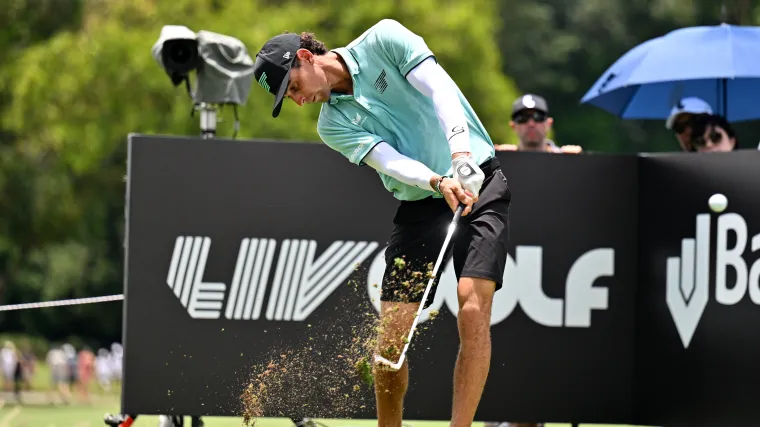
Getty
Hudson Swafford reacts before playing his shot during LIV Golf: UK – Day 1 at JCB Golf & Country Club on July 26, 2024.
The rift between LIV Golf and the PGA Tour continues to stir one of golf’s most contentious debates: should players who defected to LIV be allowed back into the PGA Tour events, and, if so, under what terms?
For many, the question taps into deeper issues of loyalty, ethics, and fairness. Some argue the players walked away from tradition and now demand a seat back at the table. Others point out that Rory McIlroy, now supportive of reunification, envisions a unified future that benefits the sport; but not everyone agrees. The clash of values is real, and the responses are polarizing.
Voices of Reason and Resistance
LIV veteran Hudson Swafford, who walked away from the PGA Tour in 2022 and is now serving a suspension that lasts until 2027, offered a nuanced perspective on a recent episode of Subpar.
“The decision was not an easy one,” Swafford said. “I knew I was gonna take some heat for doing this. I didn’t know how much heat I was actually gonna take. It was definitely some tough times for sure.”
He acknowledged the temptation of guaranteed money and a lighter schedule, but emphasized that returning players bring value, and asked whether PGA Tour peers would welcome them with open arms or closed ranks.
That sentiment contrasts sharply with the views of some legends. Lanny Wadkins, a respected PGA Champion, insisted that those who left for LIV should face “repercussions”–whether fines or suspensions–before being reintegrated. In his view, it’s unfair to those who stayed loyal.
On the more reformist side stands none other than McIlroy, who once condemned LIV, but now supports moving forward without punishment. He argues that having elite players back on the PGA Tour only strengthens it.
“You gotta look at it on this side: all these tour guys got equity in the Tour, right? So how would you not want Bryson and Brooks and the likes of Dustin and Jon Rahm, Joaquin Niemann, all these good players to come back?” Swafford said.
“That’s gonna increase your value, right? Like, your Tour is gonna get better with them coming back, but are you really gonna stick up your nose and be like, we don’t need them because of a decision that they made? I don’t know.”
Yet not everyone likes that approach. Adam Scott recently cautioned that residual resentment won’t evaporate overnight. He suspects PGA Tour players may quietly resent former colleagues returning without consequence–a tension unlikely to disappear easily.
Legal, Structural, and Legacy Implications
Beyond personal opinions, systemic developments are shifting the landscape. The June 2023 merger agreement between the PGA Tour, the DP World Tour, and LIV’s backers–the Saudi Public Investment Fund–provides for a “fair and objective process” to evaluate the return of banned players.
There are already examples of transitions underway. Laurie Canter, a former LIV golfer, re-entered PGA-affiliated events after reclaiming ranking status through European Tour victories. His return has set a precedent for paths built on performance rather than pardon.
Meanwhile, Swafford anticipates his return in 2027, but only after serving his full suspension. His case highlights how reinstatement remains structured, and the player payback period is significant.
The road ahead isn’t clear-cut. Golf’s unification under a merged umbrella promises structural paths for reintegration, but human emotions and the weight of choices linger. On one hand, exclusion feels vindictive; on the other, swift forgiveness may seem too lenient to those who stayed the course.
Ultimately, the sport must decide whether talent or tradition should be the deciding factor. The merger creates mechanisms for return, but bridging the emotional and ethical divide will require more than boardroom agreements–it will require forgiveness, transparency, and respectful dialogue.
Alyssa Polczynski Alyssa Polczynski is a multimedia journalist covering Major League Baseball for Heavy.com. She has experience as an editorial producer for MLB.com and contributed to the Society for American Baseball Research (SABR). More about Alyssa Polczynski
More Heavy on Golf
Loading more stories







